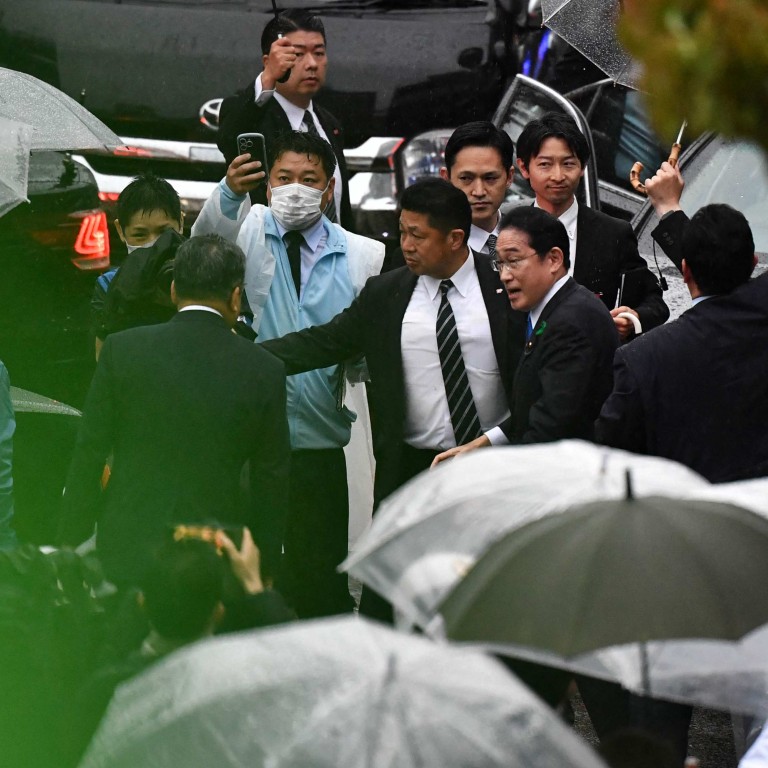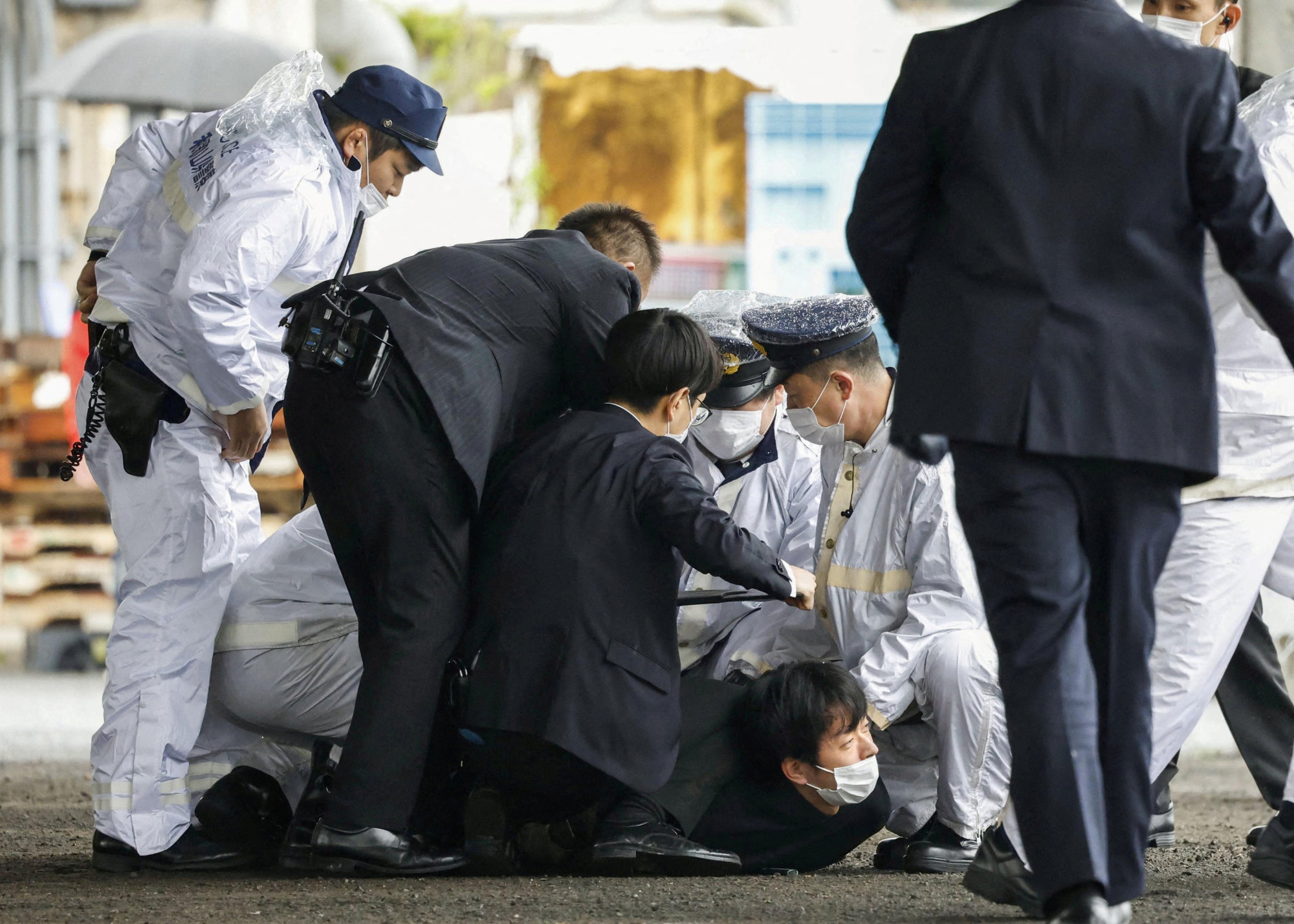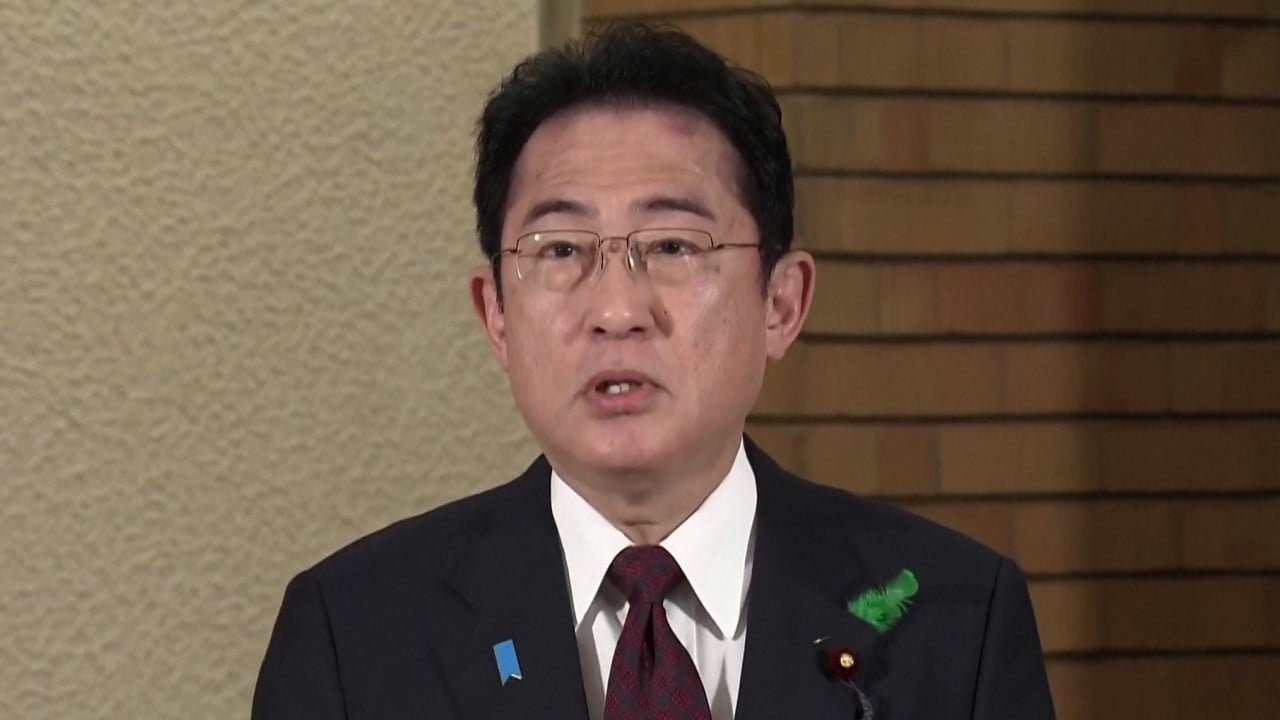
Japan’s security lapse with Kishida attack so soon after Abe’s murder was ‘embarrassing’. Should G7 leaders be worried?
- On both occasions, Abe and Kishida were surrounded by onlookers, the attackers approached from behind and got within metres of their targets
- While some lament ‘another serious lapse by the police’, others say G7 leaders ‘have little to worry about’ when they meet in Hiroshima next month
Hiroshima, Kishida’s home constituency, is preparing to host the full summit of G7 leaders next month.

Yoichi Shimada, a professor of politics at Fukui Prefectural University, said the incident represented “another serious lapse by the police”.
“If that home-made bomb had exploded, then Kishida could very easily have been badly injured or killed. This is quite clearly a grave mistake on the part of the police once again,” he said.
“It is obvious that the lessons of Abe’s assassination have not been learned. Security checks on those attending the event were too loose and there are so many parallels with the killing of Abe.”
Japan’s Kishida vows safety of G7 meetings after ‘smoke bomb’ attack
Dozens of onlookers were crowding close to both Kishida and Abe. On both occasions, the attackers approached from behind and were able to get within a few metres of their targets.
After Abe’s murder, Shimada suggested that the prime minister’s security detail should have been on the alert for a young man, by himself, carrying a backpack and disguised behind a mask.
“To me, it is inexplicable that the police did not insist on people being kept further back from the prime minister and everyone having their bags checked,” Shimada said. “It’s not good enough and there needs to be a very rapid improvement in the system of guarding VIPs before the G7 leaders arrive in Hiroshima.”
Kishida on Sunday vowed to protect foreign leaders attending G7 events across Japan in the coming months, telling reporters that “we have to make every effort to ensure safety and security … as dignitaries from all over the world gather”.
Other analysts are less fearful that Japanese politicians are becoming the target of violent attacks, pointing out that both recent cases appear to have been perpetrated by “loners” rather than organised groups, while Japan’s strict gun laws make it difficult for any potential assassin to successfully carry out an attack.
“The Abe attack was the work of an individual with a personal grudge and it very much looks as if this attempt against Kishida was also by a single loner,” said Robert Dujarric, co-director of the Institute of Contemporary Asian Studies at the Tokyo campus of Temple University. “A coordinated attack by a group of people would be much more dangerous.”
Japan’s security services are also assisted by the country’s rules on weapons, which means attackers have to make their own guns or bombs, which are invariably “inaccurate and crude”, Dujarric said.
Meet the have-a-go heroes who subdued Japan PM Kishida’s smoke-bomb attacker
“Politicians the world over like to meet people and shake hands when they are campaigning, but that has become very hard in some other countries, such as the United States,” Dujarric said. “But I do not see this as a problem for the G7 leaders while they are in Japan.”
“These people will not be meeting the public and they will be in closely policed spaces – airports after they arrive, protected motorcades, hotels and meeting venues that will have been thoroughly policed well in advance – plus they will have their own security details,” he said.
“An attack on Kishida in the run-up to the summit is embarrassing for the host country, but the G7 leaders have little to worry about as they are in a completely different environment.”


